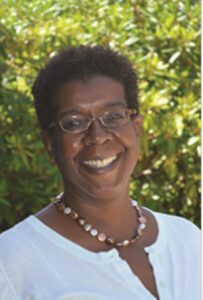PROVINCETOWN — Voters at Provincetown’s annual town meeting on Saturday will be deciding a question with little precedent on the Outer Cape. Article 13, brought forward by a group of petitioners, would allocate $136,000 to create a town office of diversity, equity, and inclusion (DEI) to close gaps in “social, racial, and cultural equity.”
The measure is funded through a Proposition 2½ override, which means it would need to pass at both town meeting and the May 11 town election ballot.
The funding is for a $30,000 initial equity assessment and one full-time staff person for one year, according to two of its local proponents, Donna Walker and Jaime de Sousa, who spoke to the Independent.

Walker, 63, an admissions counselor at Cape Cod Community College, said the source of funds was not an essential element of the proposal. “It’s simply a way to move the football forward,” Walker said. “We were told by town staff that a Proposition 2½ override was the best way to move this forward now.”
“That doesn’t mean a different funding source can’t happen in year two or three,” said de Sousa, 32, a community health counselor who recently worked at the AIDS Support Group of Cape Cod. “We’ve seen inequities come from the war on drugs — why not have the marijuana tax help fund this?”
Marijuana tax revenue cannot be allocated at town meeting until it’s certified as free cash by the state, usually around September, Finance Director Josee Young said.
At recent meetings of the select board and finance committee, there was wide support for a DEI office, but doubts about whether the current proposal had clear enough goals and language.
“I could not be more supportive,” said select board member Louise Venden of Article 13 at the board’s April 12 meeting, “but it has not been groomed to the point where we know what the scope of it is.” Venden said she would ask Town Manager Alex Morse to “develop it further.”
“To me, creating the position with no concrete goals before the study is done is putting the cart before the horse,” said finance committee chair Mark Hatch at the committee’s April 15 meeting.
 “Given where we are in this moment in history, I wouldn’t want to see Provincetown step back from this,” said finance committee member David Panagore. “The town manager will have control of the sequencing, and he can have the study done first, before the hiring.”
“Given where we are in this moment in history, I wouldn’t want to see Provincetown step back from this,” said finance committee member David Panagore. “The town manager will have control of the sequencing, and he can have the study done first, before the hiring.”
Town Manager Morse told the committee that, if the measure is passed, he and the select board will have some leeway. “We can use up to the amount funded to begin a needs assessment, community outreach, and data collection, and then move to the next step,” he said. “It is a little bit different than how positions have been created in the past, but given the substance of the proposal, I think it’s worth moving forward.”
The select board voted unanimously to “reserve recommendation” until town meeting, but the finance committee voted 6-1 to recommend the article, with Hatch, the chair, dissenting.
Walker said a key part of the $30,000 equity assessment would be figuring out who in town is too wary of government to benefit from its programs. “Think of those blue matted pathways to the beach, for people with wheelchairs or walkers,” she said. “Those are wonderful. You want to learn how to say, ‘Who is accessing the services that we offer?’ and then also learn to say, ‘Who is missing here?’ ”

“I think there’s a necessity for someone to be thinking of all these shifts we go through,” said de Sousa. “Some people see P’town as Disneyland. Others see it as a place where you have to share a room with five other people. Or a place you work year after year after year after year, and you’ll still never be able to own property in the town you gave your blood, sweat, and tears to. We have a huge flux of people coming in and out.”
Several towns in the state, all of them considerably larger than Provincetown, have a DEI office, including Brookline, Arlington, and Lexington. Nantucket hired a DEI officer in January. Falmouth is hiring one now.
“I guess you could say size doesn’t matter — we’re not immune from the hate,” said Walker, who is African-American. “I’m from Milwaukee and then suburban New Jersey, but I still see it. I still feel it. Just because it’s a small town, doesn’t mean it doesn’t exist.”



